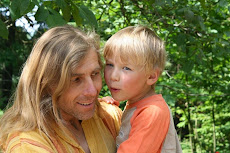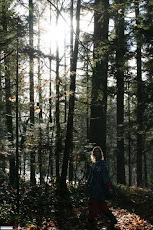My first response is to defend my poor innocent baby. Not to excuse his behaviour – Galen himself laments the amount of disciplining and parenting I’m doing with him about it – but to proclaim loudly that he has a GOOD nature, true love at his core. The incidents listed are bad moments, poor judgement, awkward flexing of new muscle that he must learn to control. He’s not a bully; he’s a good kid who’s finding his way.
All true, but that implies that a “Bully” is a different species; a category of kid who is not good, who does not love. And with the exception of a few truly psychopathic people in our society (highly unlikely in any given school), I do believe in the inherent goodness of all children and adults. I deliberately put words like “bully” and “attack” in quotation marks in that first posting because I don’t want to separate anyone with labels or categorical casting-off.
In any group, different children step into and out of the role of the child who is seen by others as the class bully. Some of their parents struggle and work hard and communicate with other parents and teachers to address the behaviour and the underlying needs of their child being expressed through that behaviour; others outwardly seem to shrug it off as “boys will be boys”, resist communication with other parents about it, or I suspect just feel overwhelmed and lost and don’t know what to do.
The reader who commented on my post worries that I am among the latter group, covering up his son’s bullying with “an entire laundry list of justifications.” I’ve taken a few days before responding to really look inside and see if there’s truth to this, and while I can see how that single posting could create that impression, I don’t believe it’s true, for two main reasons:
First, my response has not been denial. In each case, I have immediately (and in some cases, proactively) communicated with the parent, worked with Galen about it immediately then again at quieter & more receptive times, increased the level of expressed love and support for him, and increased monitoring and attention of him to watch for patterns, motivations and possible interventions. This strong but loving zero tolerance response is not one of a parent turning a blind eye.
Second, this series of incidents has not turned into a pattern that leads others to label him as “bully.” While as an adult I can put it in quotation marks and still focus on both on the goodness and the deeper need of a “bully”, the children know when a child has crossed a line. I theorize that the line is crossed when the behaviour is:
* Persistent. The children don’t flinch when they see Galen coming – they haven’t come to expect that bad behaviour is his norm. Three incidents in two weeks is a problem, and one of the reasons I moved so quickly is to make sure it doesn’t become a pattern.
* Intended to hurt. In none of those incidents was Galen trying to physically or emotionally hurt the other child. It’s a mystery what’s going on in the mind and heart of a child who has crossed the line to earn the label “bully”, but it’s clear that other children perceive him or her to be intentionally mean.
* Build up myself upon another’s weakness. In none of the incidents was Galen trying to become more popular, or perceived as the alpha dog, or feel better about himself by dominating someone else. His behaviours were wrong and need to be redirected, but as a parent I would be more concerned if they were a deliberate or unconscious strategy to gain power or acceptance.
 When Galen was 3, he was clearly a “bully.” He consistently hurt other children and was the terror of the family place drop-in centre. It was his way of dealing with the turmoil of becoming a big brother, but the other kids and parents didn’t care about that; they just saw a physically abusive big kid and ran for cover. It was every bit as difficult and painful for us as parents as when he’s on the receiving end, and a much bigger social hurdle. Through that experience I am perhaps more vigilant and sensitive, and hopefully proactive, to any sign of returning to that pattern.
When Galen was 3, he was clearly a “bully.” He consistently hurt other children and was the terror of the family place drop-in centre. It was his way of dealing with the turmoil of becoming a big brother, but the other kids and parents didn’t care about that; they just saw a physically abusive big kid and ran for cover. It was every bit as difficult and painful for us as parents as when he’s on the receiving end, and a much bigger social hurdle. Through that experience I am perhaps more vigilant and sensitive, and hopefully proactive, to any sign of returning to that pattern.No, dear reader, my son is not a bully. Like many of the children in his grade 3 class he is experiencing challenges both socially and internally with the new awakening consciousness of a 9-year-old, and at times it’s spilling out in inappropriate behaviour. We try to deal with that behaviour in a strong, loving, open way that builds our relationship with him, the other kids and the other parents. And for the children who are currently more seen in the role of “bully”, I do my best (and admittedly struggle sometimes) to equally hold them with the same compassion, love, and trust that their inherent good nature will shine through. They’re not victims and bullies, they’re children.






Some children come into this world with incredibly strong spirits, and we as parents can at best hope to give them some guidance, and provide opportunities for them to exercise their will. They are our future leaders.
ReplyDeleteLeft to the typical surroundings that suit the average child, they become dissatisfied which can quickly translate into "bully" behaviour. In my experience, these children also have a strong sense of morality, and feel a need to right perceived wrongs. Often as parents we misunderstand their intentions. We only see the extenal behaviour, which may look highly aggressive.
I struggled as a young parent with a "bully" child. Fortunately, I was able to realize that he deserved my respect and I was in a position to create a challenging environment for him. He was always happiest when set against a monumental, real task. He also had regular contact with people of all age groups and walks of life. He is now 18, and has developed into a remarkable, compassionate, moral and enthusiastic young man. Mostly, I had to step back to allow him to develop his heart in conjunction with his leadership abilities. He was voted by his graduating class as the individual most likely to change the world. I think he will.
Stong willed children are a gift. We must not crush their spirits in our zeal to appease others. We desperately need them to keep their intensity while developing empathy.
I think if a child bully's it OK to 'discipline them with a good grounding'. All this talk about strong will'd etc is a little sicking.
ReplyDelete